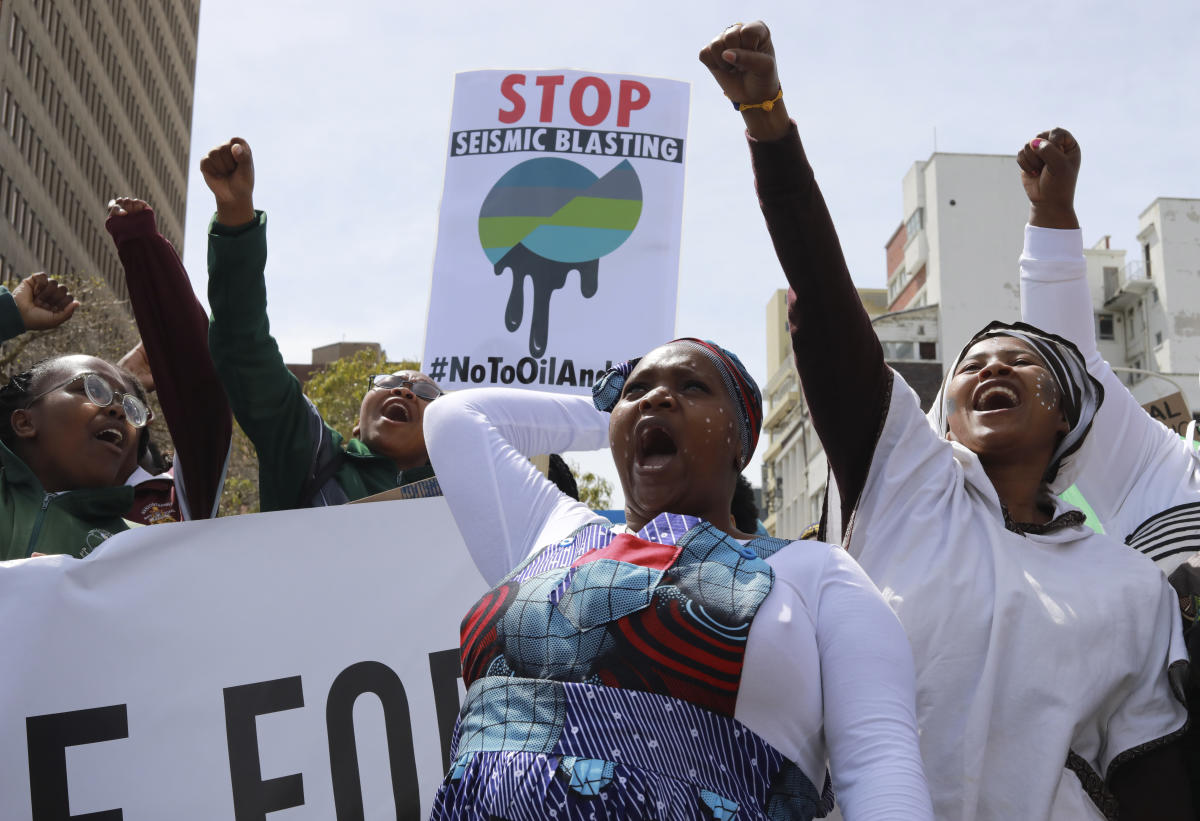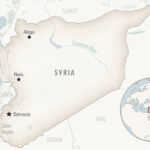
WINDHOEK, Namibia (AP) — Young climate activists from African nations have high demands but low expectations for the U.N. climate conference which begins Sunday in the Egyptian coastal resort of Sharm el-Sheikh.
Observers and organizers of the COP27 summit have made much of its location, branding the conference as an “African COP” where the positions of African countries on issues like finance for adapting to climate change or moving to renewable energy sources will be central to the talks.
Activists hope that’s true.
“For COP27 to be the ‘African COP’, the needs, voices, and priorities of the African people need to be reflected in the outcome of the negotiations,” Kenyan climate activist Elizabeth Wathuti told The Associated Press. “COP27 is a chance to bring justice to the most impacted countries through global solidarity and cooperation.”
Analysts point to sticking points between richer and poorer nations, such as questions around whether vulnerable countries should receive compensation for climate-related catastrophes, known as “loss and damage” in climate negotiations, as hindering progress at previous summits.
Some youth activists, like Wathuti, say that the continent should be looking to rich nations for massive emissions cuts and for compensation for loss and damage caused by climate catastrophes. Africa is responsible for only 3% to 4% of global emissions despite having 17% of the world’s population but it is more vulnerable than most places as many people, especially those outside urban centers, are less able to adapt.
“Financial delivery is fundamental to enable the development of Africa,” Wathuti said. “The African population is growing rapidly and securing energy for people will be crucial to combat poverty and create opportunities for a higher quality of life.”
Others say African countries need to look inward as developed nations have failed to keep their promises.
Hounaidat Abdouroihamane, an activist from the Comoros Islands said Africa should stop relying on developed countries for funding.
“Why should we beg the polluters for answers and money when we know so well they will not provide it and if they do, it will be in the form of a loan?” asked Abdouroihamane, adding the continent should “put in adaptation measures that are easy and less costly to implement” such as better management of water resources and reforesting and restoring land.
Developed nations have already failed to fulfill pledges on climate change funding, including a $100 billion-a-year pledge that is two years past its deadline and hasn’t yet been fulfilled.
Wathuti said that the negotiations should be about “accountability” and hoped the conference will address the “delivery of promises made but not met.”
Ugandan activist Vanessa Nakate agreed that financing from developed countries was central for the continent to achieve its aims.
“The $100 billion promised is no longer enough. There needs to be additional finance,” Nakate told the AP, adding there needs to be a separate fund for loss and damage.
116 million people in Africa’s coastal states and islands face sea-level risks and by 2050 African nations are projected to spend $50 billion annually on climate-related impacts, the U.N. weather agency said.
“We know what needs to be done about climate change. But what we lack is political will to actually do something,” said Nakate, adding that vulnerable communities direly need funds to help prepare for climate-related disasters.
Wathuti, Nakate and Abdouroihamane are part of a growing number of young people in Africa and around the world who have been running grassroots projects in their respective countries and call on national and international governments to do more on climate change and biodiversity loss. Abdouroihamane is actively involved in waste management projects, Nakate spearheads the installation of clean cookstoves and solar panels in schools in her native Uganda, and Wathuti leads a forest restoration project in Kenya.
Although activists have long been part of the conversation, many feel that they are not listened to. Increasingly, climate campaigners particularly in Europe have started taking drastic measures to make their arguments heard, including throwing food at famous paintings or gluing themselves to roads to a mixed reception.
“There are efforts to increase youth participation, but more often than not, young people are put in meetings to fill a seat,” Wathuti said. “For youth participation to be truly meaningful, young people need support to navigate the intricate spaces of climate negotiations.”
She added: “Young people have not caused the situation we are in, but young people are the solution. That is why participation of youth is key in high level forums like COP27.”
___
Associated Press climate and environmental coverage receives support from several private foundations. See more about AP’s climate initiative here. The AP is solely responsible for all content.




